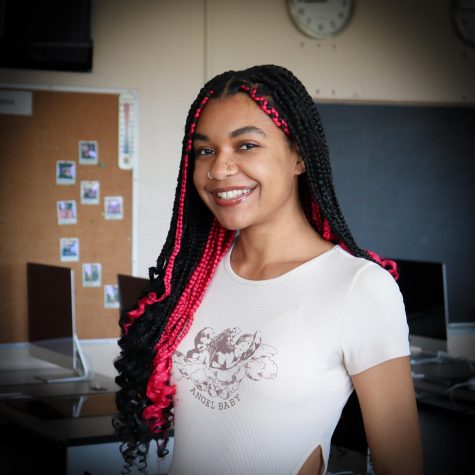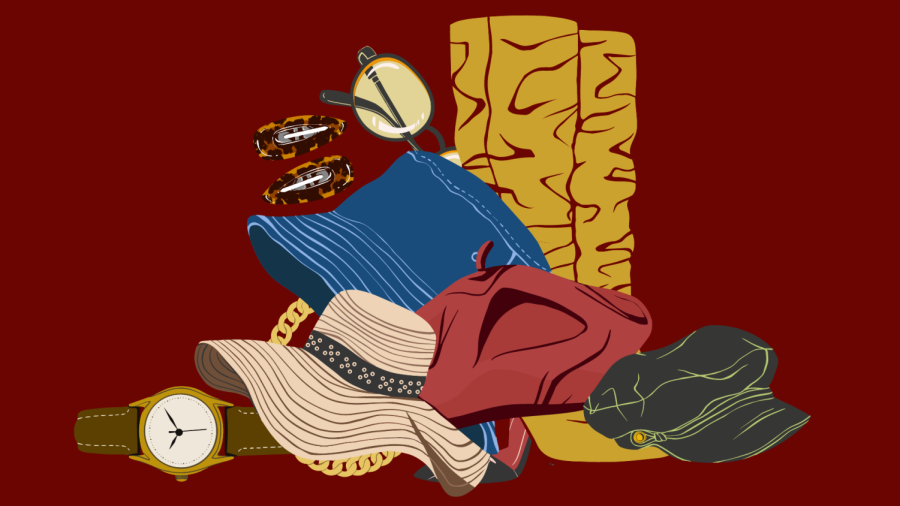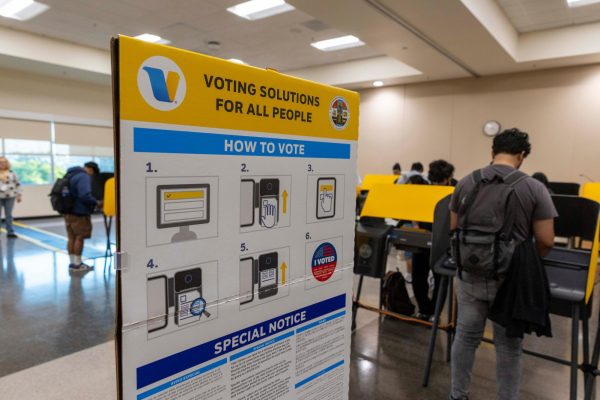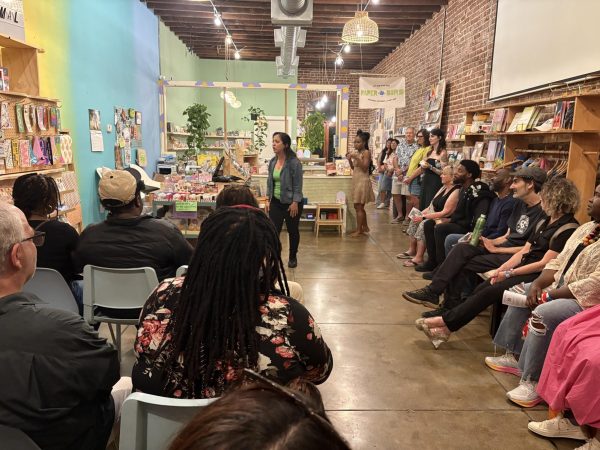How do you use fashion to communicate your identity?
Fashion can be used as a medium to express yourself through colors, patterns and textures.
Crop tops or cargo pants? Bell bottoms or blazers? Fashion is a non-verbal communication that can represent one’s political and religious beliefs, gender identity, occupation, and essence. Whether intentional or not, the way that you dress can send a message to others about how you view yourself and how you want to be seen.
Fashion originated in ancient Egypt and Rome, “where clothes made a difference between the poor and the rich,” according to fashiongonerogue.com. Fashion has now expanded into a way for people to creatively share their identities with the world, including but not limited to their financial status.
Andrea Taylor’s style: ‘Definitely not indie.’
“I dress with whatever I’m comfortable in,” said Andrea Taylor, a theater major. “Whatever fits my body type and just things that are in style, sometimes I usually show a lot of skin. But there are a few days where I want to cover up a little bit, especially on the colder days.”
Taylor believes that fashion can be used to deliver whatever message you want. She also thinks a lot of people tell their stories with fashion.
“I get a lot of compliments on how I dress and it makes me feel awesome,” Taylor said. “I guess I try to give off good vibes with how I dress. I try to look inviting for people to come talk to me.”
Taylor remembers when fashion became important in her expression of self.
“My sophomore year in high school is when I really started to care about what I wore,” Taylor said. “That was a great way for me to build confidence.”
Taylor’s favorite parts about fashion are planning out her outfit the night before school and shopping for new garments. One of Taylor’s preferred trends is 1970s-inspired fashions such as bell bottom jeans and leggings.
Channing Moore’s style: ‘90s mom attempting to be chic.’
“[Fashion] does coincide with my identity,” said Channing Moore, an art history major. “I also feel like it has limitations because whenever you get dressed, you’re limited to what you currently have. You do your best to represent how you feel and what you think you want to portray yourself as.”
To Moore, fashion means a way to represent herself in an artistic form if she chooses to do so.
Moore believes that the way that people dress can also affect how others judge them. She explains that without knowing someone else’s story, people can quickly think highly or unfavorably of others. “If they are in clean clothes, I automatically assume that they try to take care of themselves and they care about their appearance,” Moore said.
Moore, who values stylish comfortability in her fashion choices, said that her style continues to evolve.
“I think that it’s wonderful to say that you found your style, but I think that means you’re limiting yourself to growth,” Moore said. “I think that style is definitely different from fashion or being fashionable. Your style is always adapting and relating to who you are and what you’re going through. Whereas if you’re just being fashionable, then you’re wearing everything that’s [trendy].”
Leo Morales’ style: ‘Colorful, feminine, fun.’
“[Fashion] means to me expressing yourself through the way you present yourself,” said Leo Morales, a graphic design major. “ A lot of my style choices are a lot more pink and girly and feminine–that’s a way of expressing my identity. My friends like to view me as someone who likes to dress up even if we’re not doing something. Even if we’re just hanging out at the house- I’ll still just dress like it’ll be an event.”
Morales said past fashion fads also influence his style.
“I sometimes go to trends from the 80s and 90s. It’s just because I’m kind of jealous I didn’t grow up with that,” Morales said. “Growing up, I always thought, ‘Oh my god, that person looks so cool on TV,’ but I was a kid, so I couldn’t dress like that. Now that I’m older, I have the money and the self-expression to actually dress how I want.”
Morales recalls using fashion to express his identity as early as middle school.
“I didn’t want to wear the school uniform, so I did a petition or permission slip,” Morales said.
At his school, they let kids who had gotten their parents’ permission opt out of wearing the school uniform.
“Me and my two other friends in middle school just started wearing other outfits,” Morales said. “That’s kind of where I started and that eventually led to where I am today.

Alyssah Hall is a fourth-year journalism major and the Senior Multimedia Reporter for the University Times. She is passionate about spotlighting minority...

Fatima Rosales is majoring in Graphic Design and Visual Communications. She works for the University Times as Production Manager, designing the newspaper,...











